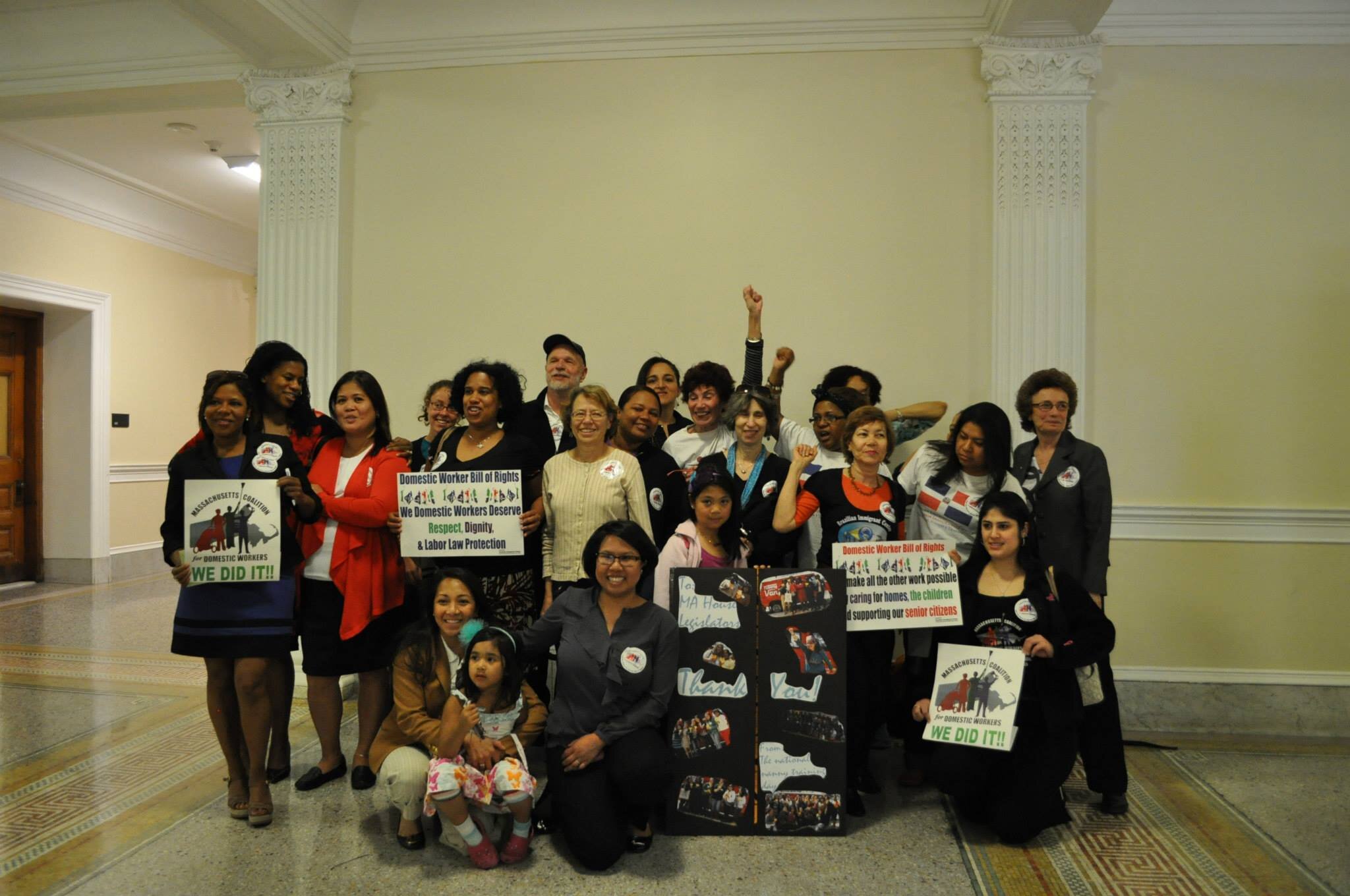We at NE Jewish Labor Committee are thrilled at this news!
From NPR: AuPair Sponsor Agencies Settle Wage Lawsuit, Offer $65.5 Million In Back Pay
"Underpaid au pairs who have worked in homes across America, taking care of children, often cooking, cleaning, playing chauffeur and providing a range of other duties, will finally receive back pay they say they are owed.
On Wednesday, 15 of the companies authorized by the State Department to recruit young foreigners to provide low-cost child care in U.S. households reached a $65.5 million settlement in a class-action law suit filed by nearly a dozen au pairs in a Denver federal court.
About 100,000 former au pairs who worked in the U.S. between 2009 and 2018 are covered under the deal, which still needs to be approved by the court...."
Read more here.
From a statement by our partners, Matahari Women's Workers Center:
"....Au pairs come to the U.S. on J-1 visas as part of a cultural exchange visitor program under the U.S. Department of State. Typically young women, au pairs provide in-home childcare for up to 45 hours per week. For this work, they receive weekly stipends of $195.75, or what amounts to $4.35 per hour. Au pairs are classified for immigration purposes as exchange visitors, but when they are working to provide essential childcare services to host families, they are underpaid employees....
The Boston-based Matahari Women Workers' Center, which organizes thousands of au pairs, nannies, and other domestic workers, applauds the au pairs who have bravely brought forward this case and their legal team. In Massachusetts, however, au pairs continue to fight for basic labor protections, including inclusion in the 2014 Massachusetts Domestic Workers' Bill of Rights. ....
...Cambridge-based Cultural Care Au Pair, a sponsor agency and affiliate of the global corporation, Education First, has led multiple failed attempts to remove au pairs from the protections of this law, arguing that au pairs are not in fact workers, despite the 45 hours of weekly child care they provide. Thanks to the organizing work of au pairs and others domestic workers, au pairs have remain protected. Cultural Care has since sued the Massachusetts Attorney General in an effort to remove itself from the law. A federal district court ruled against Cultural Care and found that au pairs are covered by the law. Cultural Care is now appealing that decision. Matahari awaits this important ruling and anticipates that it will confirm that Massachusetts au pairs are covered under the Domestic Worker Bill of Rights and entitled to receive the minimum wage and overtime under Massachusetts law....."

